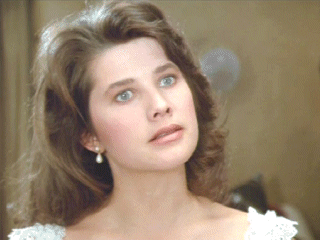A few days ago, I muddled around, talking about a writer’s voice, exploring the idea that it’s not something that can be taught — not in the way that grammar or world building or plotting can be taught.
In fact, it’s possible that I made fun of the different (and contradictory) advice out there on “finding your voice” — it certainly sounds like something I’d do.
Obviously, the logical follow-up to that post should be my own advice on how to find your voice.
See, while I don’t think voice can be taught, I do think it can be trained in the same way a singer’s voice can be trained: with exercises, drills, and most of all lots and lots of writing. However, while training is good, you really have to have a pretty clear picture of what kind of voice you have before you get started — it’s not much good to simply decide “I’m a soprano” and proceed to train yourself accordingly.

So… yeah, you have to find your voice.
But how’s that going to work? All joking aside, I’m pretty sure those bits of advice I mentioned in the last post are pretty useless, but neither am I satisfied with “just keep writing and it’ll sort itself out.”
Luckily, my granddad provides a solution.
Your Dominant Eye
There are certain qualities each of us possess. To sum it up in highly technical terms, it’s just how we’re wired. Fear of heights. A fascination with the structure of feathers. Maybe you don’t like pickles, or the consistency of cooked fruit. Ticklish feet. Whatever.
One of the most obvious of these qualities is left- or right-handedness, but for some people it’s equally important to know your dominant eye; it’s the sort of thing that matters when using firearms, shooting pool, or taking pictures. Also, you can’t assume your dominant eye is going to be on the same side of your body as your dominant hand — mine isn’t.
Luckily, it’s pretty simple to figure out which eye is the dominant one. My grandfather (who taught firearms safety courses for several decades) led me through the exercise when I was fairly young — maybe five or six — and spent the next five years or so arguing with my dad about it. (Dad was pretty sure my granddad had tricked me into thinking I was left-eye dominant just out of sheer orneriness. To be fair, that is exactly the sort of thing the men in my family would think is funny.)
One of the things I’ve always loved about this test is that it’s automatic — the subject doesn’t have to think, they just have to do, and the results present themselves without bias. Wouldn’t it be nice if there was some kind of dominant eye test for finding your voice?
But wait!
I don’t know if this is exactly the same thing as a dominant eye test for a writer’s voice, but it’s still pretty good. Stefon Mears hit us with a neat little “Status Check” writing exercise a few weeks ago — as a general rule, I don’t like writing prompts in any format, but I liked what I got out of this one, and asked his permission to share it. Goes like this:
First, a writing prompt: someone was killed in this room on New Year’s Eve. Write about that for five minutes. Go!
Do not read further until you’ve finished writing.

All done?
Seriously: Do the writing thing first, because reading the next part will permanently ruin the exercise for you. You get one shot at this. Don’t be lazy.
Really all done?
Okay.
Look over what you’ve written, not in terms of what story the exercise might produce but in terms of the writing choices you made:
- Did you write about the killing itself, events leading up to it, or the aftermath?
- Did you devote more focus to character or plot?
- What kind of conflict did you choose? Did you include more than one?
- Did you write more dialog or narrative?
- Point of View – is it 1st person? 3rd? Close or distant? Omniscient, limited omniscient, subjective, objective? Does the viewpoint stay with one character or shift to others?
Those are only a few examples. You can examine the work in terms of any craft tool or story choice you want. The key is to notice those choices, and realize which were conscious and which were automatic.
Emphasis (and some paraphrasing) mine.
As I said in the first post, voice isn’t point of view choices, or tense, or a preferences toward dialogue over narrative — not exactly. But it might contain those things, because “Voice” is a terrible, sloppy, catch-all, nest-stealing bluejay kind of term that encompasses whatever we need it to encompass at that moment, and looking at the stuff we do when we’re writing instinctively can be helpful when we’re trying to figure out what our voice actually sounds like.
It’s not perfect and simple, the way that dominant eye test is, but it helps.
Stefon again:
Spontaneous writing under time pressure can give us a snapshot of where we are as writers, not in terms of development, but in terms of choices. Every writer develops habits, and while many habits may play to our strengths, they limit the scope of our options. As writers, we owe it to ourselves to discover our habits and choose which we keep.
Good stuff, and I want to thank Stefon again for letting me use the exercise to illustrate the idea of a “voice test”.
There is one problem, though.

The thing is, the dominant eye test and others things like it work better (especially with younger kids) if the subject doesn’t know why they’re doing it. Foreknowledge can lead to skewed results. This is quintuply true for any writing exercise like the one above: now that you know what you’re going to be looking for after you’re done, you’ve tainted the results; the whole point is to do it without thinking about the choices we’re making. (River warned us about spoilers.)
But this is not a complete loss.
Go back and pull out a bunch of different first drafts and look them over, asking the same questions as the exercise above, and you can start to see the recurring patterns.
Once you see those patterns, decide what bits you like and get better at them — work on it in your writing, pursue it in your reading, whatever.
Decide what bits you don’t like and… you know… stop doing that.
You can’t teach voice, I said, and I believe it. But you can find it, and you can train it, and I think maybe that’s how.


Fun exercise. Though, oddly, though I do most of my writing in the first person, I did this blurb in the third.